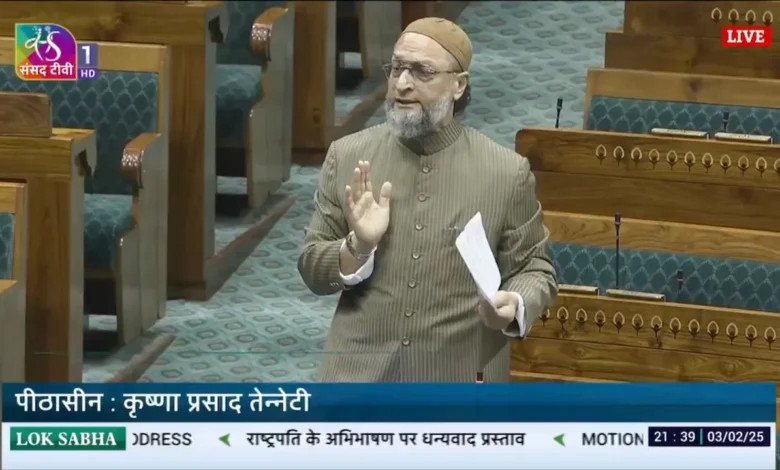
Hyderabad, Feb 3, 2025 – AIMIM President Asaduddin Owaisi has strongly opposed the Waqf Bill, claiming that it has been rejected by the Muslim community due to its potential impact on Waqf properties and minority rights. Speaking at a public gathering, Owaisi alleged that the bill is aimed at undermining the autonomy of Waqf boards and could lead to the government’s control over Muslim religious endowments.
Key Highlights
🔹 Asaduddin Owaisi declares the Muslim community rejects the Waqf Bill
🔹 Claims the bill threatens Waqf properties and minority rights
🔹 Calls for the government to engage in dialogue before passing the legislation
🔹 Community leaders and religious scholars also oppose the bill
Why is the Waqf Bill Controversial?
The Waqf Bill, introduced in Parliament, aims to streamline the management of Waqf properties across India. However, critics, including Owaisi, argue that:
✔️ It gives excessive control to the government over Waqf properties
✔️ It undermines the independence of Waqf boards
✔️ It could lead to seizure of Waqf assets by state authorities
✔️ It violates the constitutional rights of religious minorities
Asaduddin Owaisi’s Statement
🚨 Owaisi, while addressing a press conference, stated:
“The Muslim community has completely rejected this Waqf Bill. It is nothing but an attempt to seize our religious and community properties under the guise of regulation. The government should withdraw it immediately and hold discussions with religious leaders before moving forward.”
Community Reaction and Protests
🕌 Muslim religious leaders, scholars, and community organizations have expressed strong opposition to the bill, claiming it will:
🔹 Diminish community control over religious endowments
🔹 Pave the way for government intervention in Waqf affairs
🔹 Potentially dispossess mosques, madrasas, and charitable institutions
📢 Protests are expected across multiple states, with several organizations planning rallies and legal challenges against the bill.
Government’s Defense of the Bill
On the other hand, government officials argue that the Waqf Bill is aimed at curbing corruption and improving transparency in the management of Waqf properties. They claim that:
✔️ The bill seeks to introduce stricter auditing of Waqf boards
✔️ It will help prevent encroachment on Waqf lands
✔️ The autonomy of Waqf institutions will not be compromised
Despite these assurances, opposition leaders, including Owaisi, remain unconvinced, citing past instances of state interference in minority institutions.
Legal and Political Implications
The controversy over the Waqf Bill is likely to have legal and political consequences:
📌 Legal Challenge: Community organizations may approach the Supreme Court to challenge the bill if passed.
📌 Political Impact: The issue could become a major topic in upcoming elections, influencing Muslim voters.
📌 Wider Religious Debates: Similar concerns may arise over the management of religious properties of other communities.
What’s Next?
🔹 Muslim leaders to hold further discussions with legal experts
🔹 Political parties may introduce amendments to the bill in Parliament
🔹 Public demonstrations expected in major cities
Conclusion: A Bill That Divides Opinion
Asaduddin Owaisi’s strong opposition to the Waqf Bill has added fuel to an already heated debate. While the government claims it will bring transparency, critics see it as an infringement on religious autonomy. With protests looming and legal challenges expected, the fate of the Waqf Bill remains uncertain.






